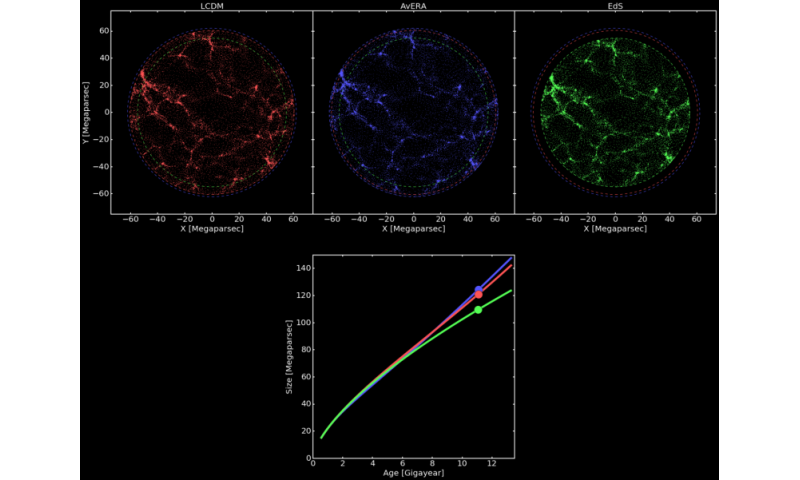Best of Last Week—Universe expansion rate sans dark energy, more deadly heat across planet and mental shortcuts

(ScienceX)—It was a very good week for physics as a Hungarian-American team of researchers took a stab at explaining the accelerating expansion of the universe without dark energy by taking into account its changing structure. Also, a team at the University of East Anglia conducting research into light particles challenged the understanding of quantum theory—they found that when photons are created in pairs, they can emerge from different locations. And a team at Newcastle University gained new insight into superfluids after they revealed a storm at their surface—a boundary layer that "stuck" to surfaces in the same way as ordinary fluids.
Also, a trio of researchers with Università di Palermo claimed they had settled the controversy over identical particle entanglement by showing it could be done. And a team at NIST conducted a thought experiment suggesting that quantum computers may have higher "speed limits" than thought, which involved looking at how quickly its switches may flip. Also, a pair of researchers, Adrian Bejan with Duke University and Marcelo Errera with Federal University of Paraná in Brazil, found that physics could predict wealth inequality using the Constructal Law.
In other news, a group of paleontologists with the University of Queensland and James Cook University reported on the discovery of an "unparalleled" number of dinosaur tracks that had been found in Australia—21 different types were found in rocks believed to be 140 million years old. And a team at Penn State found that eating peanuts may lead to supple arteries and healthy hearts—so long as you eat them with your meal, not in-between. Also, a trio of researchers in the U.K. reported on the results of a study they conducted that suggested that we should expect more deadly heat from climate change—even if those countries that signed the 2015 Paris meet their goals.
And finally, if you are someone who has been accused of allowing your emotions to guide your decision making, which has at times seemed to lead than less than rational results, you might be interested in a study done by a team at Duke University. They found that mental shortcuts, not emotion, may guide irrational decisions—which means you might just be mentally lazy, rather than someone who lets your emotions get the best of you.
© 2017 ScienceX